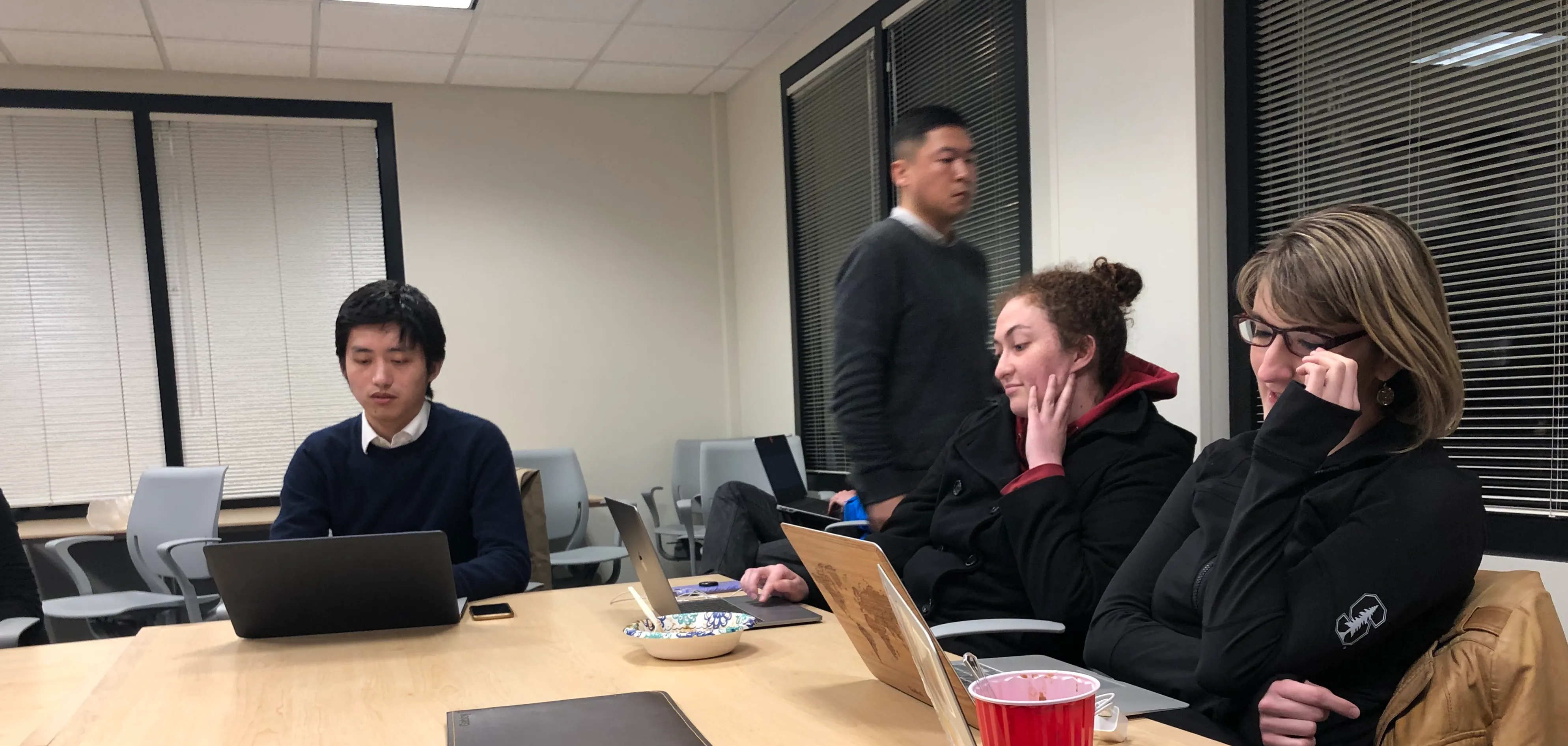In its weekly Wednesday meeting, several members of the Graduate Student Council (GSC) sharply criticized the design of the Affordability Assessment sent out to graduate students on Monday, raising concerns about the University’s commitment to financial accessibility. The Council also voted 7-2 against a bill that would provide additional funding for a Chinese New Year’s celebration scheduled for Sunday and managed in part by a GSC co-chair, citing concerns of fairness and precedent.
The survey
Councilmember Mateo Carrillo, a Latin American history Ph.D. candidate, brought objections to the design of the Affordability Assessment to the Council during its open session. He criticized the lack of room for students to provide qualitative feedback and called some questions “extremely disappointing.”
“I just have to voice my frustration,” he said. “There was a lot of missed opportunity in this survey.”
Carrillo went on to lament the fact that students could only provide feedback in response to two questions, each of which had a 1,000-character limit.
The prompts asked students about the positive aspects of their experiences at Stanford.
“We have two questions to ask graduate students: ‘How do affordability issues affect you?’ And we’re asking them, ‘Why is Stanford awesome to you?’” Carrillo said. “How can this wishy-washy survey really tell the stories of grad students?”
Ana Tarano B.S. ’13 M.S. ’15, Diversity & Advocacy Committee (DAC) co-chair and aeronautics and astronautics Ph.D. candidate, described the questions as “hiding the voices” of students.
Abísola Kusimo M.S. ’17, a mechanical engineering Ph.D. candidate, took issue with some of the multiple-choice questions on the survey, which she found to be poorly chosen.
“They’re asking all the wrong questions,” she told the Council.
The questionnaire, she said, gave students the impression that the University doesn’t care about their financial issues.
The survey was designed by Mercer, a research firm, with input from students on the Affordability Task Force that is part of Stanford’s Long-Range Planning (LRP) efforts. Carrillo questioned Mercer’s intentions, saying that it reflected a concern with “optics” rather than improving financial accessibility.
“I think this is almost intentional,” he said.
Gabby Badica, GSC Social Chair and a Ph.D. candidate in the Division of Literatures, Cultures and Languages, serves as co-chair of a subgroup of the Affordability Task Force. She defended some aspects of it while acknowledging its shortcomings, adding that she “share[s] some of [Carrillo’s] frustrations.”
She and Terence Theisen, a former GSC Co-Chair and another student involved in the affordability task force, emphasized that they did not have full control over the survey’s design.
“We did not have final say on questions,” Theisen said. “A lot of the things you’re saying were raised.”
Decisions were ultimately made by Stanford administrators and Mercer officials, according to Badica and Theisen.
“The survey is not the only thing we’re using to determine things,” Badica said, referring to other surveys and focus groups. “Any grad student who wants to meet with me, I will make time to meet with you.”
Carrillo urged for attention to be paid toward issues of affordability. He spoke of a graduate student he knows, who he said picked fruit from trees on campus in order to feed his family.
Chinese New Year bill
The Council also considered a bill authored by Badica to fund the 2019 Stanford Chinese New Year Gala, which would provide an additional for $5,000 for the event. Melanie Malinas, funding committee co-chair and Ph.D. candidate in biophysics, immediately came out in opposition to the measure, which was defeated after intense debate.
The celebration, scheduled for Sunday, is jointly hosted by Association of Chinese Students and Scholars at Stanford (ACSSS), Stanford Chinese Sing, Stanford Chinese Women Collective and Stanford Chinese Music Ensemble. GSC Co-chair Yiqing Ding, a member of ACSSS leadership and a Ph.D. candidate in aeronautics and astronautics, described the funding as critical.
He explained that the celebration includes many acts from different students and student groups. The funding would go toward reimbursing them for expenses that they would otherwise pay out-of-pocket, such as piano rentals and costume purchases.
Voluntary student organizations (VSOs) such as ACSSS usually receive funds through submitting “VSO Requests” to the Council, which are paid out from a designated partition. ACSSS has already reached the maximum funding it can receive from the Council, $6,000.
The Council has already allocated $15,688 for the event to its four sponsors.
“I am strongly in opposition to this bill,” Malinas told Councilmembers. “It’s not really fair to the other VSOs.”
“Things change; event services’ quotes change,” Ding said. He emphasized that the funding was not just for ACSSS and that leftover funds would be returned to the Council.
Councillors debated the bill for nearly an hour, citing countervailing concerns of precedent, fairness and flexibility.
If the Council approved the bill, GSC Co-chair and cancer biology Ph.D. candidate Amy Tarangelo said that she would be “very concerned that there would be accusations of bias.”
“If Black Law Association comes in [asking for additional funding] and we say no … is it because they don’t have a rep on GSC?” she said.
Carrillo interrupted debate to call for a vote. With seven votes in opposition, two in favor and three recusals — including Ding’s — the measure failed.
Other council proceedings
In chair updates, Tarangelo discussed her efforts work with Residential & Dining Enterprises (R&DE) to widen graduate students’ dining options. In social updates, Badica discussed her work in coordinating EEPROM, the Graduate Students in Electrical Engineering’s (GSEE) annual gala, and her plans for a Valentine’s Day party and a wellness-and-relaxation-themed event. In updates from the Diversity & Advocacy Committee (DAC), Tarano discussed her progress in writing an affordability-focused op-ed and the postponement of DAC’s diversity summit due to “administrative issues.”
The Council also approved funding requests from the Grad Students of Electrical Engineering, the Taiwanese Student Association, the Hindu Student Association, the Black Engineering Graduate Student Association (BEGSA), BioAims and the Asian Pacific American Medical Student Association (APAMSA).
Contact Charlie Curnin at ccurnin ‘at’ stanford.edu.
